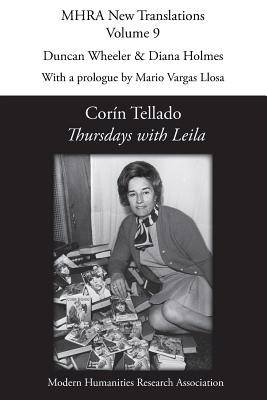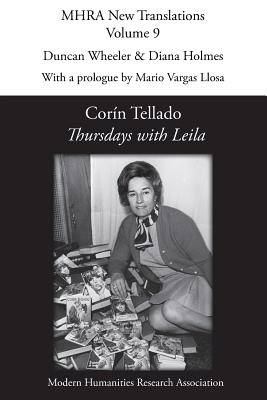
- Afhalen na 1 uur in een winkel met voorraad
- Gratis thuislevering in België vanaf € 30
- Ruim aanbod met 7 miljoen producten
- Afhalen na 1 uur in een winkel met voorraad
- Gratis thuislevering in België vanaf € 30
- Ruim aanbod met 7 miljoen producten
Omschrijving
Thursdays with Leila exemplifies the slapdash style and narrative verve, piety and subversion, timeless myth and topicality that made Corín Tellado the queen of the Spanish romance. Of a later generation than Britain's Barbara Cartland or France's Delly, she, like them, nevertheless wrote in a society tensed between the inexorable development of modernity and a deep-rooted social conservatism.
Tellado's tales of love, and of women's difficult quest for material and emotional wellbeing, clearly gave great pleasure to her millions of readers throughout and beyond the Franco years in Spain, as well as in Latin America and, in translation, in other European countries -- most notably France and Portugal.
The popularity of romance with women readers reflects the extent to which the choice (or imposition) of a male partner has determined women's chances of happiness, and the quality of their lives. But like all good romance heroines, Tellado's Leila is reluctant to acknowledge this, allowing her readers to imagine modes of self-realisation that might not depend on the goodness, charm or otherwise of a husband. Leila is strong, capable, and determined to succeed in her project of making an independent living and taking care of her step-siblings. Of course He appears, the hero: irresistibly handsome, sexually magnetic, and socially powerful. Stephen Knowles is the alpha male we expect in a romance novel since (at least) Jane Austen's Mr Darcy or Charlotte Bronte's Edward Rochester.
Specificaties
Betrokkenen
- Auteur(s):
- Vertaler(s):
- Uitgeverij:
Inhoud
- Aantal bladzijden:
- 102
- Taal:
- Engels
- Reeks:
- Reeksnummer:
- nr. 9
Eigenschappen
- Productcode (EAN):
- 9781781882443
- Verschijningsdatum:
- 10/11/2016
- Uitvoering:
- Paperback
- Formaat:
- Trade paperback (VS)
- Afmetingen:
- 156 mm x 234 mm
- Gewicht:
- 154 g

Alleen bij Standaard Boekhandel
Beoordelingen
We publiceren alleen reviews die voldoen aan de voorwaarden voor reviews. Bekijk onze voorwaarden voor reviews.









